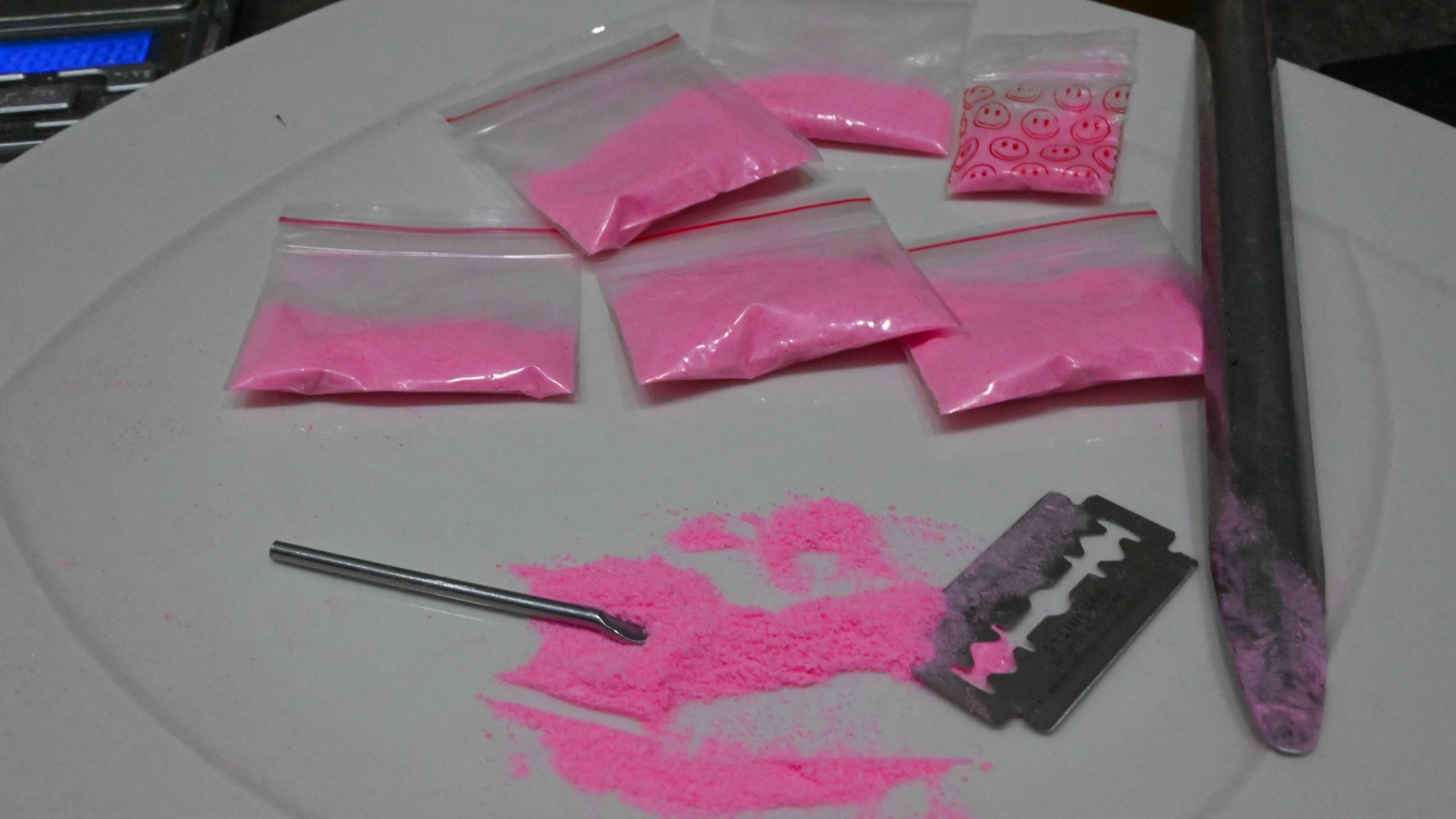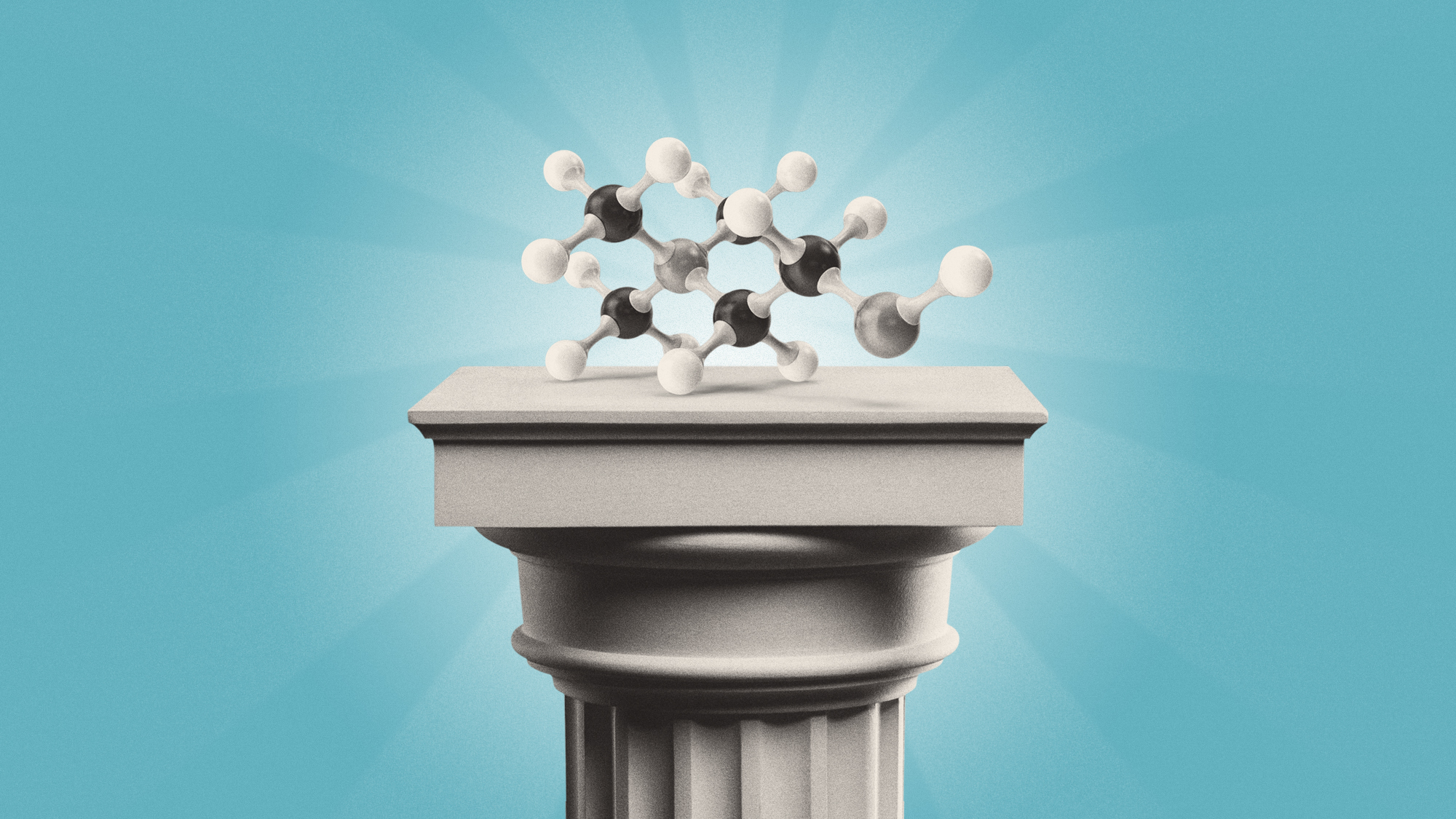Pink cocaine: the new drug cocktail responsible for an increasing number of deaths
The substance has been linked to the death of Liam Payne and named in a lawsuit against Sean 'Diddy' Combs


A free daily email with the biggest news stories of the day – and the best features from TheWeek.com
You are now subscribed
Your newsletter sign-up was successful
An emerging drug cocktail known as pink cocaine has doctors on edge and federal investigators sounding alarms. The substance has been growing in popularity both in the United States and across the world and is turning into a highly commercialized drug that can have deadly results.
The cocktail surged in the headlines when former One Direction star Liam Payne, who died after falling from his hotel room balcony in Argentina, was found with pink cocaine in his system, according to ABC News. The drug has also been cited in a sexual misconduct lawsuit against Sean "Diddy" Combs. But beyond its celebrity status, there are signs that pink cocaine is making the rounds in everyday society.
What is pink cocaine?
Despite its name, pink cocaine, also called tusi, does not usually contain cocaine. It is "typically a powdery mix of ketamine and illegal substances such as methamphetamine, MDMA (also called molly or ecstasy), or opioids," said NBC News. Food coloring is used to turn the powder pink, and it may also have a distinctive sweet smell. Other substances that have been found in pink cocaine "include benzodiazepines, caffeine, hallucinogens, and the street drug bath salts."
The Week
Escape your echo chamber. Get the facts behind the news, plus analysis from multiple perspectives.

Sign up for The Week's Free Newsletters
From our morning news briefing to a weekly Good News Newsletter, get the best of The Week delivered directly to your inbox.
From our morning news briefing to a weekly Good News Newsletter, get the best of The Week delivered directly to your inbox.
Pink cocaine "can be very misleading" because of its color and sweet smell, Diane Moore, the head of toxicology at the Miami-Dade County Medical Examiner's Office, said to The Washington Post. But "people don't really know what they're using." The drug can "put people into a 'k-hole' where they feel like they're in a blank space, like they are disassociated from their body, they're disassociated from their brain, they don't know what's going on," Bridget Brennan, New York City's special narcotics prosecutor, said to CBS News.
Pink cocaine is "referred to as 'Russian Roulette' because its composition varies drastically between batches," Joseph Janes, a criminology lecturer at the U.K.'s Swansea University, said to Newsweek. This "significantly increases the risk of overdose or severe adverse reactions."
What is being done about the pink cocaine epidemic?
Officials are working to warn the public of pink cocaine's danger — and also try and get it off the streets. The Drug Enforcement Agency (DEA) has "begun targeting those individuals responsible for sale of this illicit drug," DEA Special Agent in Charge Frank A. Tarentino III said in a press release following a pink cocaine sting in Manhattan.
Efforts are also being made to stem the flow of pink cocaine from other countries, particularly ones with notable ties to illicit drugs. Earlier this year, U.S. officials "reported seizing pink cocaine among other drugs off the coasts of Mexico and Central and South America," said The Associated Press. While these drugs were seized, it also offered evidence that pink cocaine was being smuggled into the U.S. at increasing rates. This was the "first time that I heard of large batches being imported into the U.S. as tusi," Joseph Palamar, who studies drug trends at NYU Langone Health, said to the AP.
A free daily email with the biggest news stories of the day – and the best features from TheWeek.com
And the drug's effects might worsen, as researchers fear that "fentanyl may begin to appear in pink cocaine, increasing the potential for overdose and death," said the Los Angeles Times. Officials are being extra cautious with this potential shift, given America's already widespread opioid problem. One recent study found that a California sting seized pink cocaine "containing ketamine and despropionyl fentanyl, a fentanyl precursor."
Justin Klawans has worked as a staff writer at The Week since 2022. He began his career covering local news before joining Newsweek as a breaking news reporter, where he wrote about politics, national and global affairs, business, crime, sports, film, television and other news. Justin has also freelanced for outlets including Collider and United Press International.
-
 How the FCC’s ‘equal time’ rule works
How the FCC’s ‘equal time’ rule worksIn the Spotlight The law is at the heart of the Colbert-CBS conflict
-
 What is the endgame in the DHS shutdown?
What is the endgame in the DHS shutdown?Today’s Big Question Democrats want to rein in ICE’s immigration crackdown
-
 ‘Poor time management isn’t just an inconvenience’
‘Poor time management isn’t just an inconvenience’Instant Opinion Opinion, comment and editorials of the day
-
 Growing a brain in the lab
Growing a brain in the labFeature It's a tiny version of a developing human cerebral cortex
-
 Mixed nuts: RFK Jr.’s new nutrition guidelines receive uneven reviews
Mixed nuts: RFK Jr.’s new nutrition guidelines receive uneven reviewsTalking Points The guidelines emphasize red meat and full-fat dairy
-
 Trump HHS slashes advised child vaccinations
Trump HHS slashes advised child vaccinationsSpeed Read In a widely condemned move, the CDC will now recommend that children get vaccinated against 11 communicable diseases, not 17
-
 The truth about vitamin supplements
The truth about vitamin supplementsThe Explainer UK industry worth £559 million but scientific evidence of health benefits is ‘complicated’
-
 A fentanyl vaccine may be on the horizon
A fentanyl vaccine may be on the horizonUnder the radar Taking a serious jab at the opioid epidemic
-
 Health: Will Kennedy dismantle U.S. immunization policy?
Health: Will Kennedy dismantle U.S. immunization policy?Feature ‘America’s vaccine playbook is being rewritten by people who don’t believe in them’
-
 Stopping GLP-1s raises complicated questions for pregnancy
Stopping GLP-1s raises complicated questions for pregnancyThe Explainer Stopping the medication could be risky during pregnancy, but there is more to the story to be uncovered
-
 Choline: the ‘under-appreciated’ nutrient
Choline: the ‘under-appreciated’ nutrientThe Explainer Studies link choline levels to accelerated ageing, anxiety, memory function and more
